Caneberries
Caneberry (i.e. blackberry and raspberry) articles written by members of the Southern Region Small Fruit Consortium. More information on Caneberry crops.
-

By Aaron Cato, Extension Specialist, Horticulture IPM, University of Arkansas The buzz about broad mite seems to have picked up across the Southeast after reports of significant infestations in North Carolina during the 2019 and 2020 growing seasons. Broad mite has been a known pest of Southeast blackberry plantings for over a decade. The majority…
Posted in: Spring 2021 -
By Matthew Bertucci, Ph.D., Assistant Professor, Sustainable Fruit and Vegetable Production, Department of Horticulture, University of Arkansas Weed management is a familiar and challenging issue for many blackberry producers. According to a University of Arkansas survey, over 20% of growers in nine participating states described weed control as their top concern. And I suspect that…
Posted in: Spring 2021 -
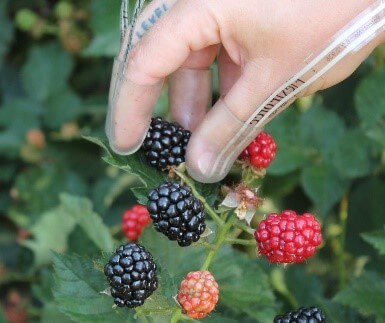
By Dr. Renee Threlfall and Dr. Yue Chen Research Team: A.L. Gunderman1, J.A. Collins1, A.L. Myers2, R.T. Threlfall2, and Y. Chen11Department of Mechanical Engineering and 2Department of Food Science, University of Arkansas, Fayetteville, AR, USA Fresh-market blackberries are mostly hand harvested to the maintain quality of this delicate fruit from harvest to consumption. Labor shortages,…
Posted in: Spring 2021 -
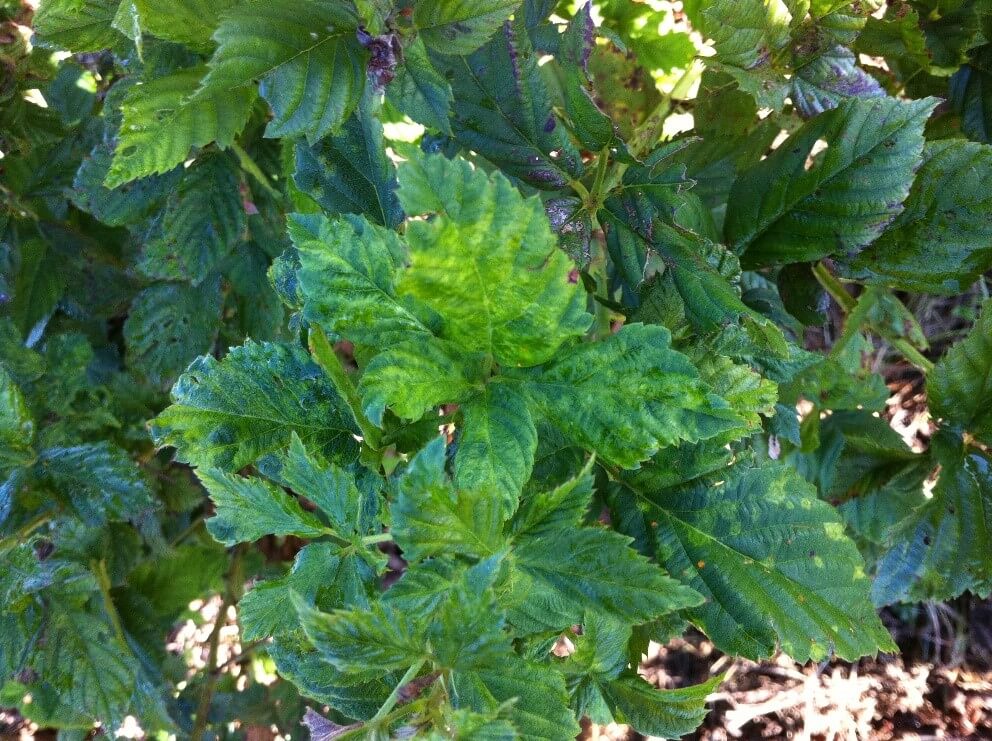
By Ioannis E. Tzanetakis, Professor and Director of the Arkansas Clean Plant Center – University of Arkansas Division of Agriculture Plants are not immune to viruses. Unlike many other pests and pathogens, once a plant is infected with a virus, it is infected for life. Blackberry is no exception. The most important virus disease in…
Posted in: Spring 2021 -

By Jonathan E. Oliver, Department of Plant Pathology, University of Georgia Background Numerous cane diseases can reduce the yield and lifespan of caneberries, and the warm, humid environment in the southeastern U.S. can provide ideal conditions for disease development. Among the diseases affecting caneberry production, one of the most devastating is cane blight. This disease…
Posted in: Spring 2021 -
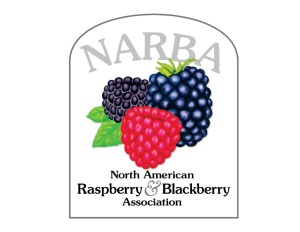
The 2021 North American Raspberry & Blackberry Conference will be held virtually on February 22-25, 2021. The conference features more than 25 hours of presentations and panel discussions, plus posters, informal forums, and lots of opportunity for networking. Caneberry breeding receives special attention with eleven breeders and geneticists from around the world presenting. A special…
Posted in: Winter 2021 -

By Jonathan E. Oliver, UGA Extension Annual updates have been made to the Southeast Regional Caneberry Integrated Management Guide. These include: Information on registered pesticides and web links to state pesticide databases A “Mobile and Online Tools” page featuring Apps and online tools for recognizing and managing caneberry diseases, pests, and weeds Updated pesticide efficacy…
Posted in: Winter 2021 -
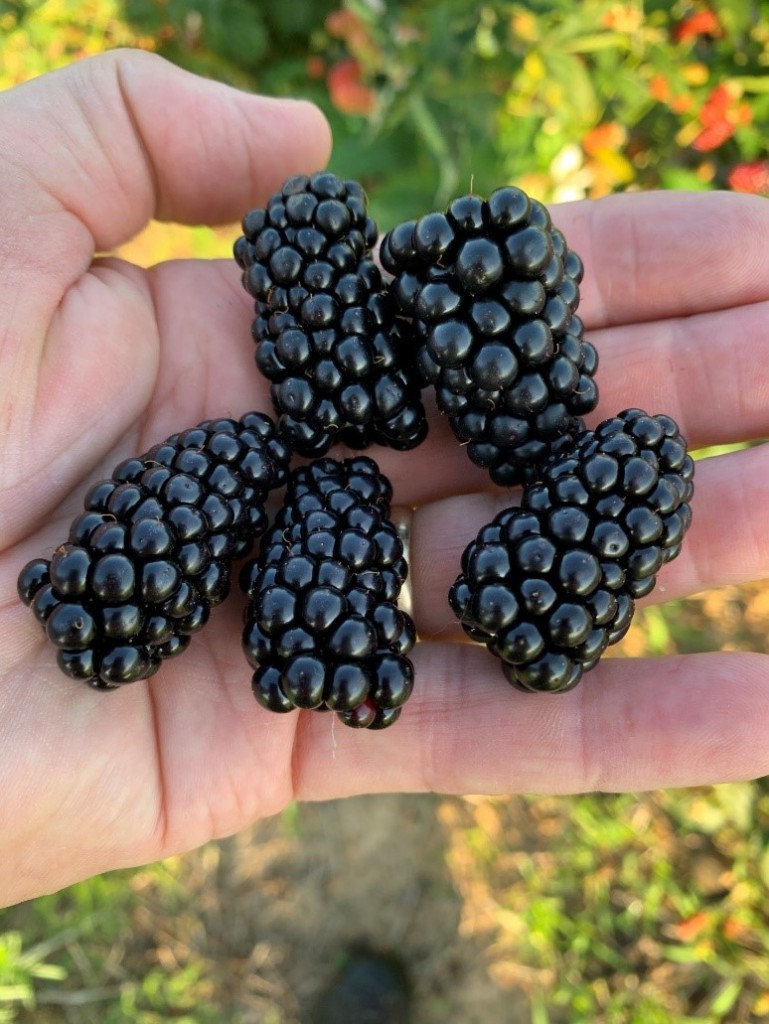
By John R. Clark, University of Arkansas A new blackberry has been released by the University of Arkansas System Division of Agriculture (UA), named Prime-Ark® Horizon. This is the sixth public primocane-fruiting variety from the UA breeding program. Although primocane fruiting does not hold substantial potential in the deep South, this type of berry is…
Posted in: Winter 2021 -
By Dr. Gina Fernandez, North Carolina State University This checklist was originally developed for blackberry growers in North Carolina. You may have to adjust your work activities either earlier or later depending on your location. For more detailed information, check the Southern Region Integrated Bramble Management Guide and the Southeast Regional Bramble Production Guide at…
Posted in: Winter 2021 -
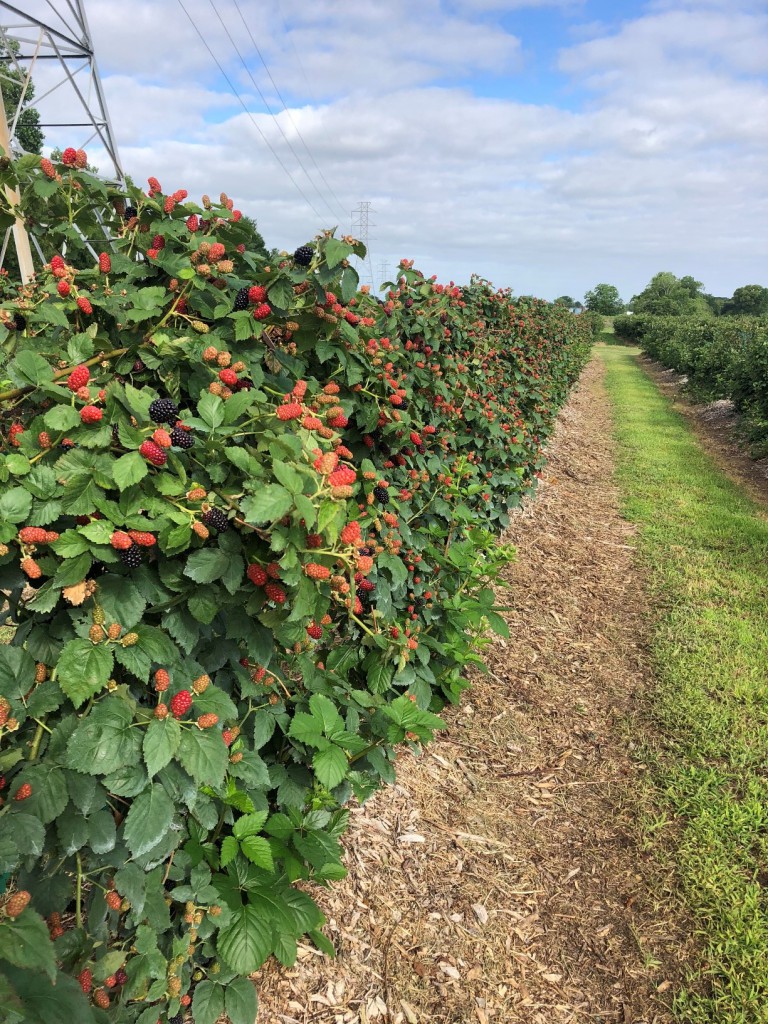
By John R. Clark, University of Arkansas Prime-Ark® Freedom was released in 2013 by the University of Arkansas, the first thornless, primocane-fruiting blackberry ever developed. At the time, I recommended it primarily for home-garden use along with possible local-market production. I gave this limited-use recommendation largely due to its yield and postharvest storage shipping potential…
Posted in: Winter 2021